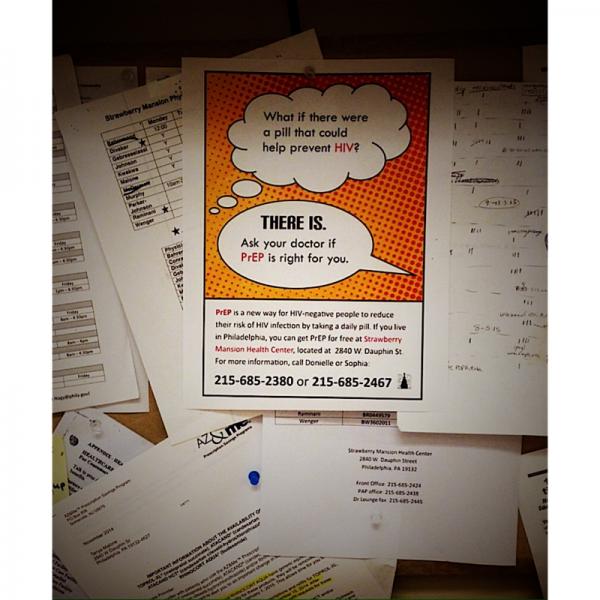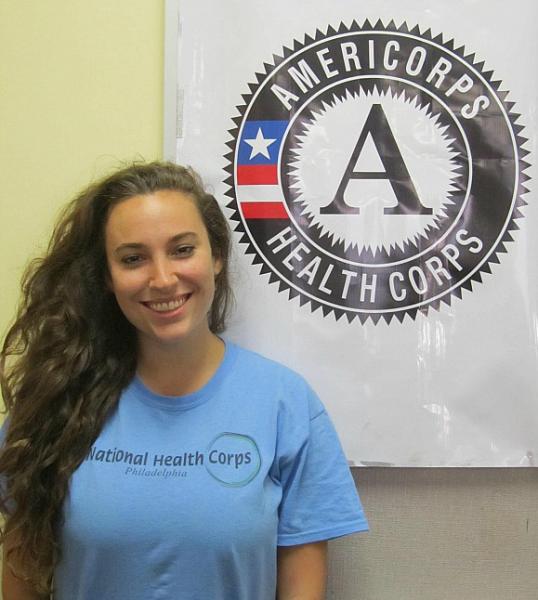When Being PrEPared Gets Complicated
“What if there were a pill that could help prevent HIV?”
This is the question posed on the PrEP program flyers found on the bulletin boards of the Philadelphia Department of Public Health clinics around the city. And interestingly, this pill—Truvada—does exist, and was approved by the Food and Drug Administration in 2012. “PrEP” stands for “Pre-Exposure Prophylaxis”—in other words, a pill to be taken before the chance of exposure to HIV occurs. After a series of clinical trials, it was ultimately found to reduce the risk of contracting HIV by up to 92%. In a serodiscordant couple (a couple where one partner is HIV positive, and the other partner is HIV negative), if the HIV positive partner regularly takes his/her medicine, the HIV negative partner regularly takes his/her PrEP, and they use condoms, the risk of transmission is nearly impossible. The usefulness of PrEP can extend far beyond this scenario: to injection drug users, people with multiple partners, and really anyone who thinks they may be at high risk.

So why, with the existence and approval of this pill, is providing PrEP to patients still such a challenge? I sat down to discuss this question with Sophia Bessias, PrEP Study Project Coordinator, and Donielle Sturgis, PrEP Study Project Assistant, both of whom work at Strawberry Mansion Health Center where I serve with the Philadelphia Health Corps (PHC). Philadelphia is one of four cities (alongside Newark, Houston, and Chicago) currently participating in this particular CDC study of PrEP use. The two professionals discussed how the idea of prescribing Truvada as PrEP has been met with a certain level of resistance by some doctors. Some are “not used to it, it’s something that they haven’t really done,” Sturgis commented. Bessias went on to agree, and also explained that “there’s an idea out there that PrEP promotes risky sexual behavior. Although we do continue risk reduction counseling that includes condom promotion…there’s still resistance to promoting something that can be seen as tacit endorsement of not using other forms of protection, sort of the way that that unfolded with birth control many years ago; people felt that [it] would promote promiscuity or immoral behavior among women, and there’s still that kind of moral panic happening around PrEP.”
Another barrier in the widespread use of PrEP comes from the patient experience. Medication adherence—consistently and reliably taking the pill—is an ongoing issue in any treatment plan. This is one of the major aspects of the PrEP experience that Project Coordinator Bessias and her team are studying. Reflecting on his experience, one patient shared that “acknowledging that you are part of this high-risk group can be difficult to process.” This is something I see often with patients during the PrEP intake process. It can sometimes take a few visits for people to commit to PrEP, not because the concept of protecting yourself is necessarily difficult, but because the acknowledgment and realization of risk can be frightening.
As a Patient Assistance Program Advocate, I collaborate with the PrEP program at Strawberry Mansion Health Center to provide uninsured patients with this preventative medicine. Together with Sturgis and Bessias, much of what we do is address the fear and confusion patients may be experiencing. We continue to see how important both education and communication are in tackling barriers to care; by collaborating and eliminating extra steps for patients, the PrEP team can begin to study and delve deeper into the complexities of harm reduction and prevention from both the healthcare provider and patient perspectives.
To learn more, visit: www.cdc.gov/hiv/prep and www.prepfacts.org
If you or someone you know would like to learn more about PrEP in Philadelphia, please visit: http://www.phila.gov/health/ambulatoryhealth/hcStrawberry.html

This post was written by PHC member Nora Loughry.
Nora serves at the Philadelphia Department of Public Health - Strawberry Mansion Health Center as a Patient Assistance Program Advocate.